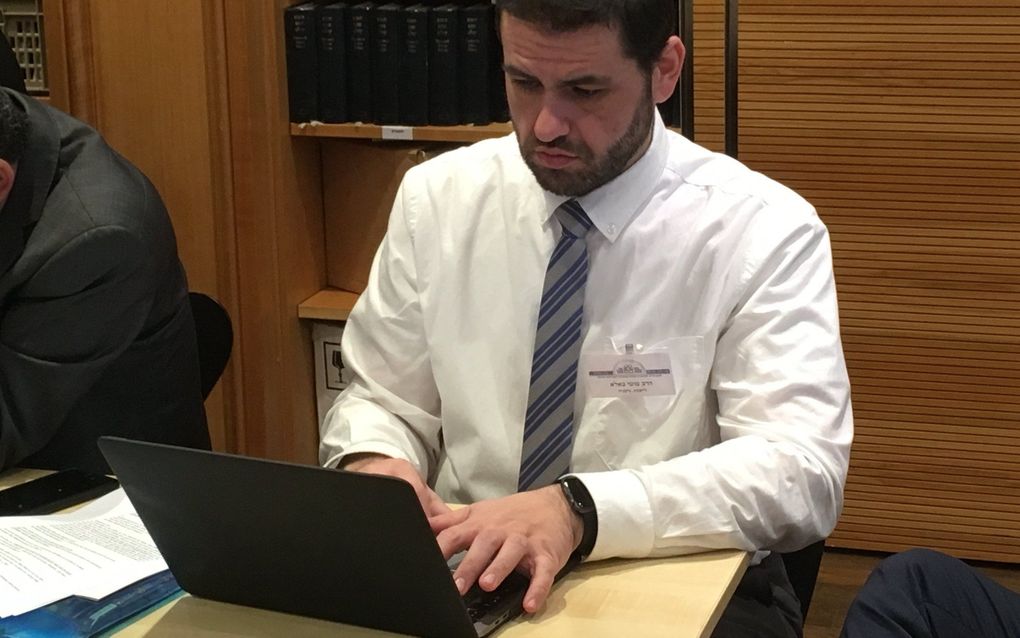German army gets first rabbi in century
The German army has a military rabbi again: Zsolt Balla. On Monday, the Jewish pastor of the city of Leipzig became the first spiritual rabbi of the Bundeswehr in more than 100 years.

Mr Balla hopes that more Jews will serve in the German army, the Neue Zürcher Zeitung reports. Deutsche Welle quotes him by saying “that it should be normal that a Jewish soldier will serve in the Bundeswehr.”
Being a soldier as a Jew in the German army is historically very sensitive, knowing the history of the Holocaust and anti-Semitism. But in the 19th century up to the Nazi period that started in 1933, there were many Jews in the Reichswehr and Wehrmacht.
Leo Baeck, the great thinker of Judaism, was a chaplain during the First World War. He and around thirty other rabbis took care of the 100,000 or so Jews in the army at the time. Over a third of them were honoured for their bravery, according to the Neue Zürcher. Today a few hundred Jewish Germans serve in the Bundeswehr, and Zsolt Balla will initially hold his office alone. But a beginning has been made, a new beginning that many had not expected after the Shoah.
Coming from Hungary
Balla (1979) comes from Hungary, where his non-Jewish father was a lieutenant colonel in the People’s Army. Curiosity about Judaism led him to Berlin, where he studied. He was ordained in Munich and raves about the Torah. Latent anti-Semitism worries him, although it hasn’t reached him personally yet.
Balla has been the rabbi of the Israelite Community in Leipzig for twelve years and is now also a Saxon regional rabbi. Here he lives with his wife and three children.
In the Neue Zürcher, he tells how he felt when he approached Berlin by train as a Hungarian Jew. His grandmother was saved from the Nazis during the German occupation by the Swedish diplomat Raoul Wallenberg. Otherwise, she would have been hit by the murder machinery of the Nazis.
But Balla got used to German life. “Times have changed and the paradigms. We have to build the future”, he says in the Neu Zürcher. He attended the newly opened rabbinical seminary in Berlin and was ordained in 2009 as an orthodox teacher.
One of the first rabbis trained in Germany
He was one of the first two rabbis trained in Germany after the Shoah. At the celebration in Munich, the then Federal Minister of the Interior, Wolfgang Schäuble, declared that the role of leader and teacher was “one of the essential tasks of those who are ordained today. They have been well and thoroughly prepared for it.”
The son of the lieutenant colonel met the Bundeswehr through the Central Council of Jews and the Orthodox Rabbinical Conference. He was a guest in Koblenz at the Center for Inner Guidance when the “Central contact point for dealing with diversity” was still called “Central contact point for soldiers of other faiths”.
There are other Jewish voices. The Bundeswehr is the successor to the Wehrmacht, which was part of Hitler’s campaign of conquest and extermination. Zsolt Balla understands every Jew who stays away for historical reasons. As a military rabbi, he wants to help Jews feel at home in the Bundeswehr and stand up for Germany.
In 2019 the present Defence Minister Annegret Kramp-Karrenbauer decided to open posts for pastoral care for Jewish soldiers again. According to Deutsche Welle, Minister Kramp-Karrenbauer will be among the speakers in the Leipzig synagogue on Monday.
He also wants to open doors for young Jewish people. He says this as a federal military rabbi at the head of the new army rabbinate, a federal authority in Berlin which, according to the law on Jewish military pastoral care, should include “up to ten military rabbis”. The Central Council sifts through the applications.
It is unclear how many Jews serve in the Bundeswehr. The Defence Ministry speaks about 300, but it is not sure whether that’s correct. There is an organisation for Jewish soldiers, but that is not very open and accessible.
Latent anti-Semitism
Whenever the rabbi leaves his house, he wears a kippah. He has not yet been attacked, but the evil looks are increasing. “Latent anti-Semitism” is also growing. More and more parishioners are afraid to profess their Judaism at work.